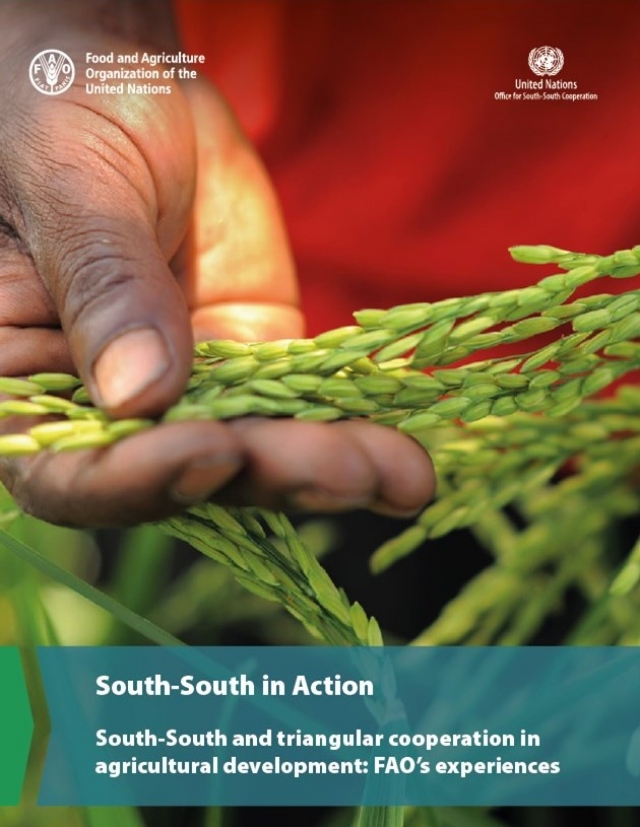
South-South in Action
04/08/2022
This publication outlines key features of South-South and Triangular Cooperation (SSTC) and how FAO has applied SSTC to the delivery of its mission. The case studies presented provide a window on how SSTC has contributed to alleviating hunger and malnutrition in countries across the global South and has helped build resilience in the face of climate change and other development challenges. The lessons learned from these experiences are feeding into the new FAO SSTC Guidelines for Action (2022–2025) and will guide FAO's future results-based SSTC programmes.
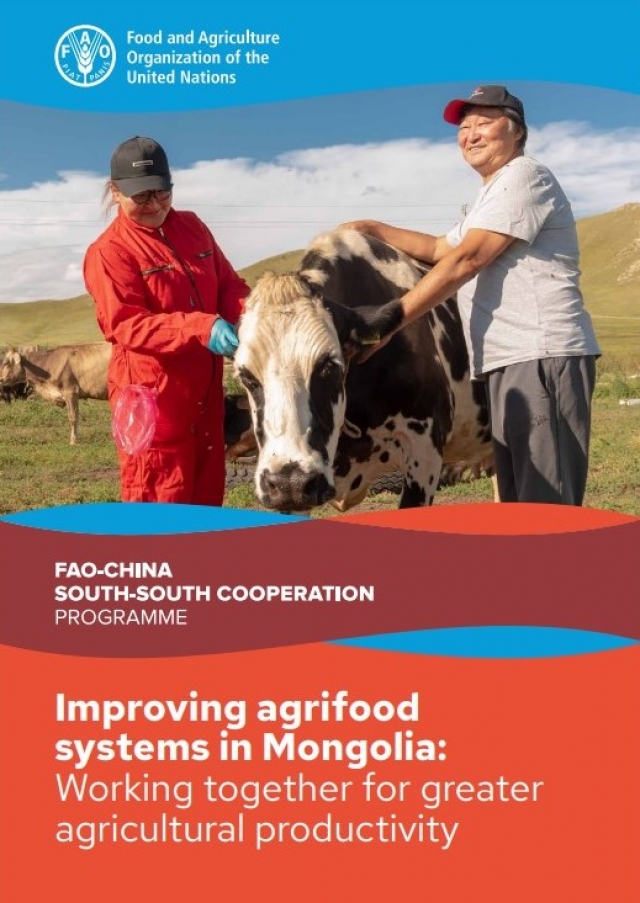
Improving agrifood systems in Mongolia: Working together for greater agricultural productivity
26/05/2022
Sustainable agricultural development lies at the very heart of FAO’s mission to achieve food security and ensure that people everywhere have regular access to enough high-quality food to lead active and healthy lives.
Agrifood systems are driven by the men and women whose daily lives are dedicated to working on the land and on waters and to managing food systems. Their skills, toil and years of accumulated experience are the backbone of food systems — they propel communities and countries. The efforts of agricultural workers represent a vital force moving us towards achieving the Sustainable Development Goals (SDGs) of the United Nations 2030 Agenda for Sustainable Development. South-South exchanges are a key means to support and develop these efforts and are particularly needed in developing countries. Most countries in the global South face a range of challenges in achieving the SDGs, including SDG1 No poverty and SDG2 Zero hunger, and these challenges are increasing in the wake of threats to food security and nutrition caused by the Covid-19 pandemic. Nevertheless, these countries are also reservoirs of home-grown development solutions in the areas of agriculture and food security that could be further replicated and scaled up through South-South and triangular cooperation (SSTC).
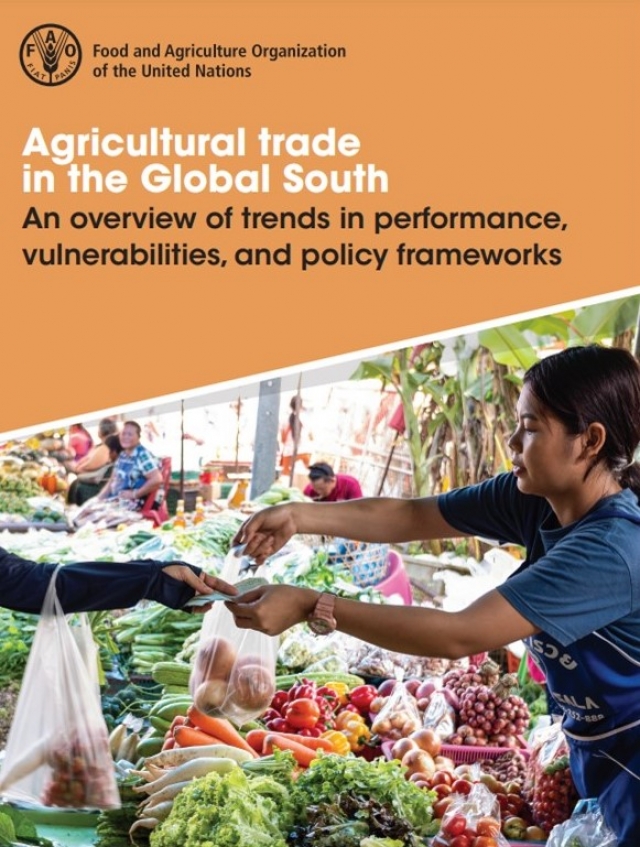
Agricultural trade in the Global South
04/04/2022
The importance of South countries in global agrifood markets and trade has been increasing over the last two decades, with growth in their participation, as both exporters and importers, having outpaced that of North countries. South countries, as a group, are net exporters of fruits, vegetables, fats and oils, and tropical products such as coffee, tea, cocoa and sugar, and net importers of key food commodities such as cereals, meat and dairy products. These patterns reflect structural changes along the development path. Agricultural productivity growth has fuelled expansion in the production of some products, while population growth and urbanization, rapid economic growth and increasing per capita incomes have contributed to growing demand for diverse food products.
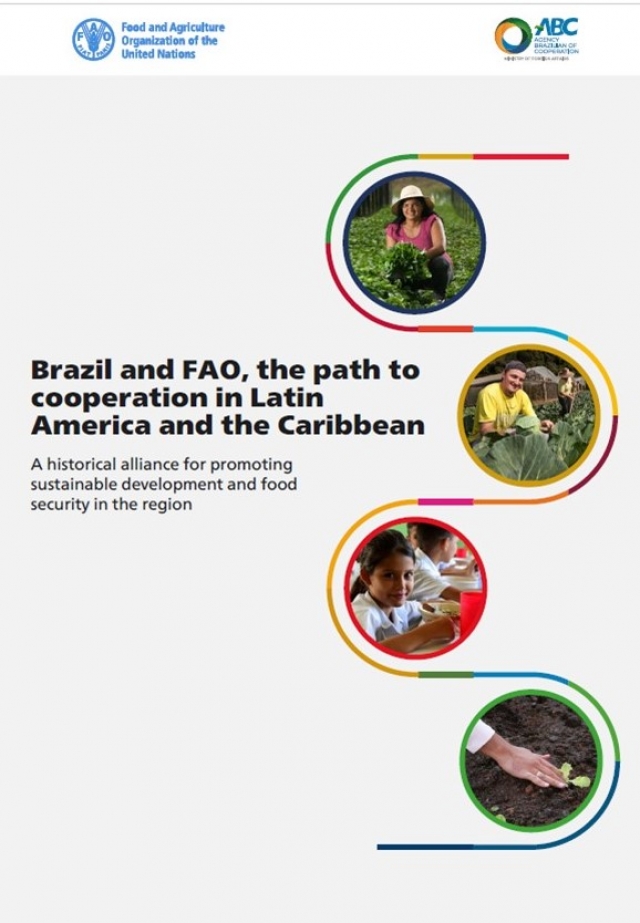
Brazil and FAO, the path to cooperation in Latin America and the Caribbean
01/04/2022
In 2008, due to the growing interest of other developing countries in learning about successful Brazilian policies in the area of food and nutrition security (FNS) and agriculture, the Brazilian Government initiated a partnership with the Food and Agriculture Organization of the United Nations (FAO) to share Brazil's experience through South-South cooperation, based on FAO's comparative advantages.
Under the scope of this partnership, the implementation of Trilateral South-South Cooperation projects for the benefit of developing countries in Latin America and the Caribbean and Africa began in 2012, with technical support from Brazilian Cooperating Institutions (BCIs) such as the National Fund for Educational Development (FNDE, by its acronym in Portuguese), the Ministry of Agriculture, Livestock and Food Supply (MAPA, by its acronym in Portuguese) and the Brazilian Agricultural Research Corporation (EMBRAPA).

South-South and Triangular Cooperation Guidelines for Action
07/01/2022
The Food and Agriculture Organization of the United Nations (FAO) has embraced South-South and triangular cooperation (SSTC) as a key delivery modality to catalyse agricultural development, food security, rural development, poverty reduction and nutrition over the past two decades. FAO has strengthened its support for SSTC since 2012, and the SSTC portfolio has been expanding in line with the progressive institutionalization of SSTC in FAO. The main objective of the new SSTC Guidelines for Action is to develop a results-focused vision and structure, providing strategic direction for FAO’s SSTC programme and strengthening FAO’s position as global advocate, convener, broker, facilitator and enabler of SSTC in the area of agri-food systems.
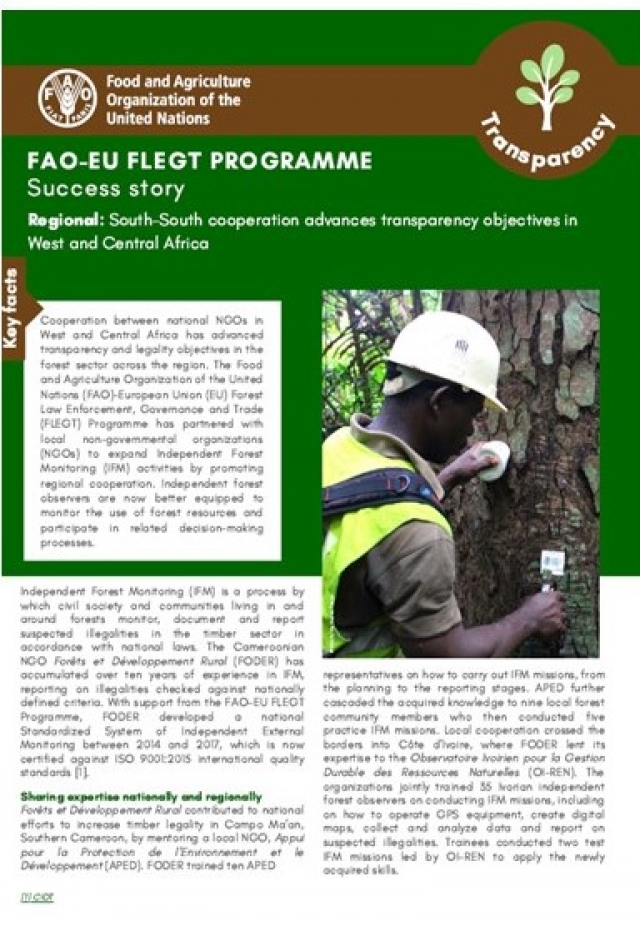
Regional: South-South cooperation advances transparency objectives in West and Central Africa
02/07/2021
Cooperation between national NGOs in West and Central Africa has advanced transparency and legality objectives in the forest sector across the region. The FAO-EUForest Law Enforcement, Governance and Trade (FLEGT) Programme has partnered with local NGOs to expand Independent Forest Monitoring activities by promoting regional cooperation. Independent forest observers are now better equipped to monitor the use of forest resources and participate in related decision-making processes.
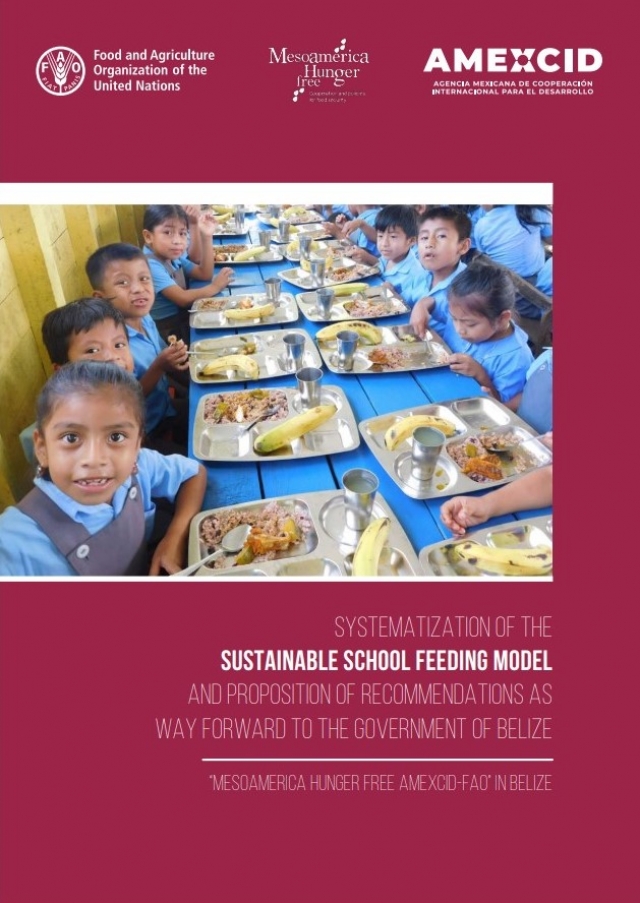
Systematization of the Sustainable School Feeding Model and Proposition of Recommendations as a way forward to the Government of Belize
09/06/2021
This document was based on the “Sustainable Schools” model implemented in four pilot schools of the Toledo District in Belize. Both the model implementation and the development of this document were carried out within the framework of “Mesoamerica Hunger Free AMEXCIDFAO” programme (MHF), an initiative jointly led by the Government of Mexico, through the Mexican Agency for International Development Cooperation (AMEXCID), and the Food and Agriculture Organization of the United Nations (FAO).
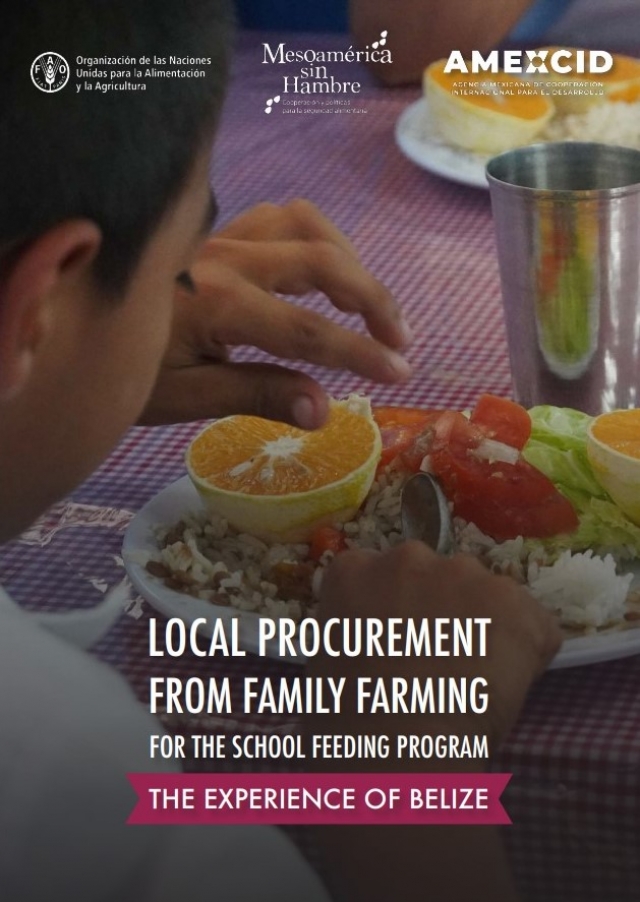
Local Procurement from Family Farming for the School Feeding Program - The Experience of Belize
09/06/2021
This document was based on the “Sustainable Schools” model implemented in four pilot schools of the Toledo District in Belize. Both the model implementation and the development of this document were carried out within the framework of “Mesoamerica Hunger Free AMEXCID-FAO” programme (MHF), an initiative jointly led by the Government of Mexico, through the Mexican Agency for International Development Cooperation (AMEXCID), and the Food and Agriculture Organization of the United Nations (FAO).
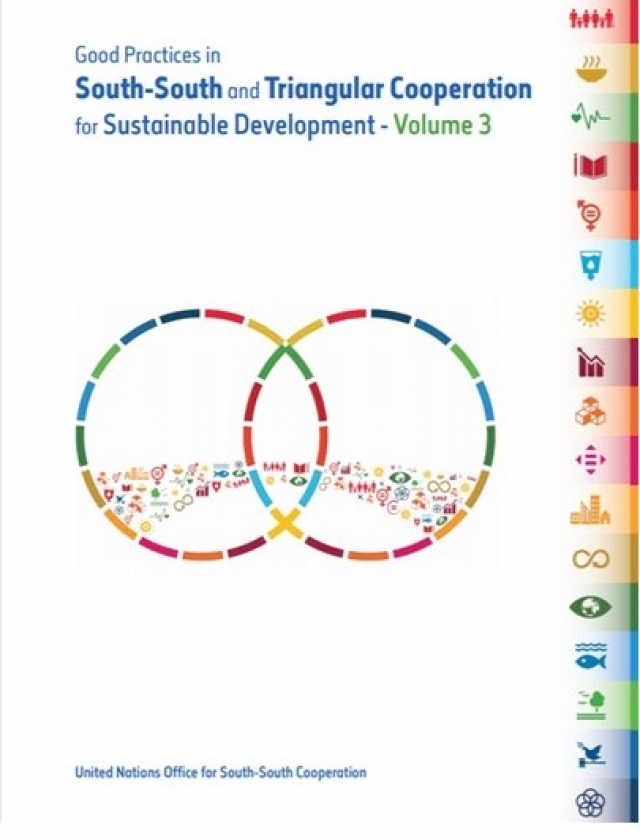
Good Practices in South-South and Triangular Cooperation for Sustainable Development - Volume 3
23/10/2020
This volume was prepared by the UN Office of South-South Cooperation and features 195 good practices, obtained by 77 partners including Member States, intergovernmental organizations, United Nations entities, and other development partners.
This collection of good practices demonstrates the spirit of solidarity, peer-to-peer learning and collective efforts among countries and partners, in order to jointly address development challenges and highlight concrete solutions, which can be replicated and adapted in other countries.
Great emphasis is given to innovative activities and the importance of cross-country transfer of knowledge and experience between countries of the South.
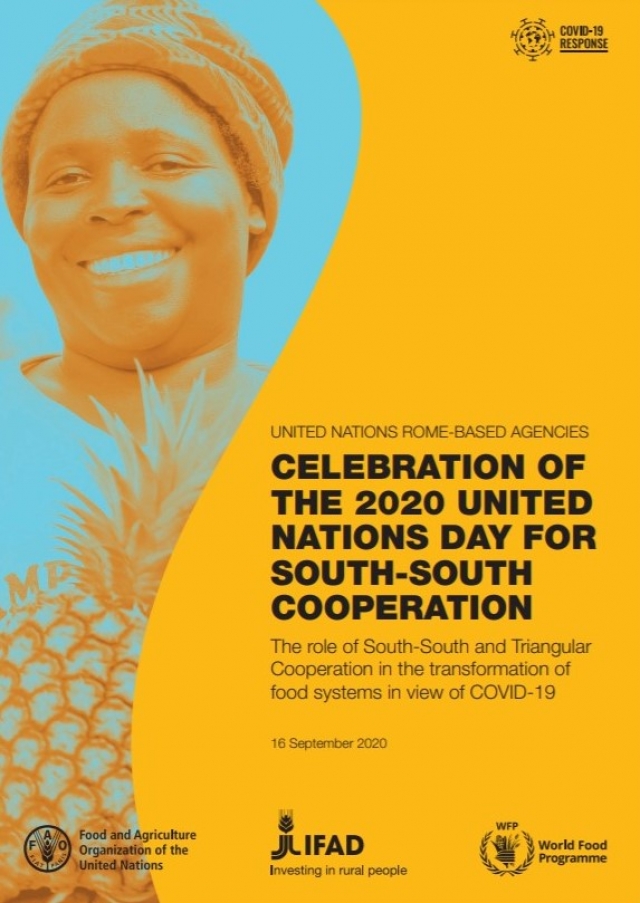
UN RBAs Celebration of the 2020 UN Day for SSTC
14/09/2020
On the occasion of the 2020 celebration of the United Nations Day for South-South Cooperation on 12 September, the United Nations Rome-based agencies (RBAs) – the Food and Agriculture Organization of the United Nations (FAO), the International Fund for Agricultural Development (IFAD) and the World Food Programme (WFP) – take the opportunity to reaffirm their commitment to strengthening their collaboration on facilitating SouthSouth and Triangular Cooperation (SSTC) for the effective implementation of the 2030 Agenda for Sustainable Development and the achievement of the Sustainable Development Goals (SDGs).